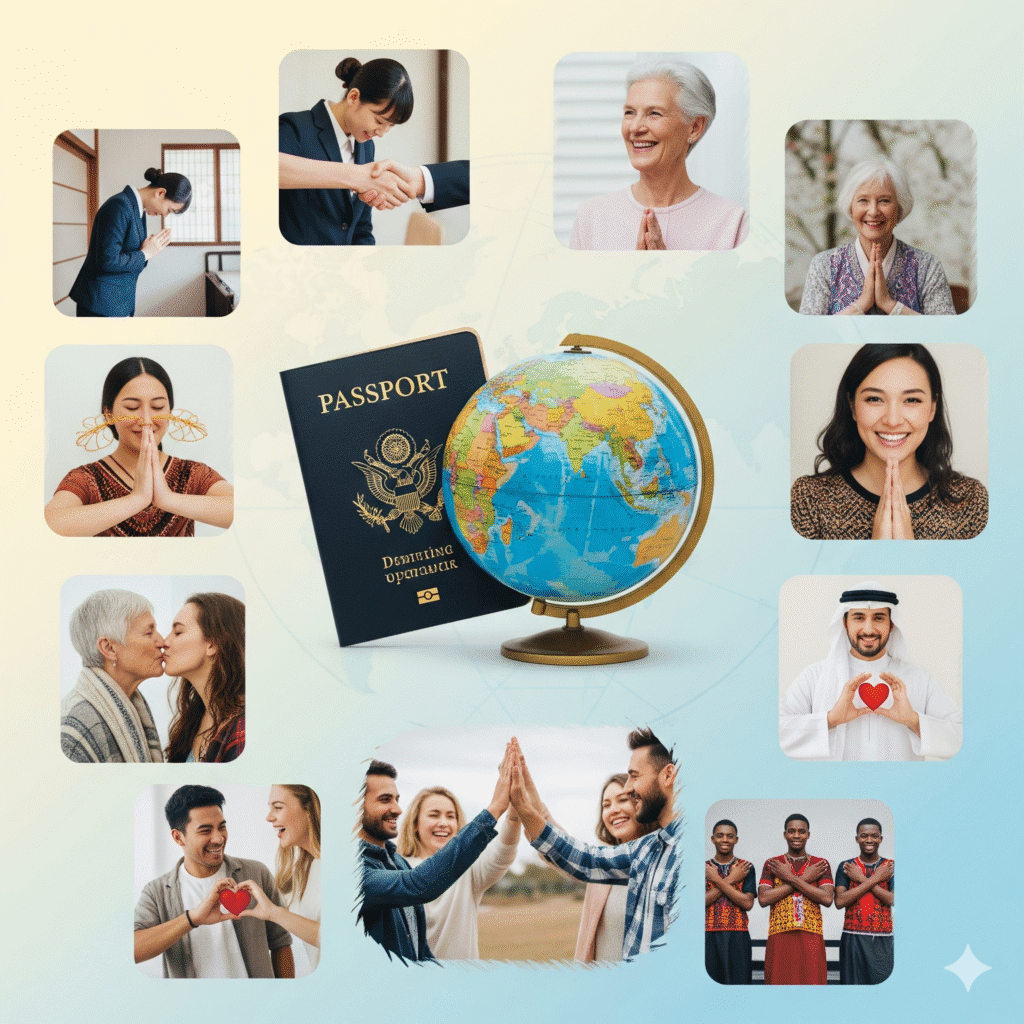Introduction
Traveling abroad can be an exhilarating experience, offering a plethora of new sights, sounds, and experiences. However, navigating different cultural norms and customs can be daunting, even for the most seasoned traveler. Understanding and respecting local customs is crucial to avoid unintentionally offending the locals and to ensure a more enjoyable and immersive experience. In this comprehensive guide, we will delve into the 10 essential cultural etiquette tips that every traveler should know before embarking on their journey abroad.
Understanding Cultural Differences
Cultural differences can be subtle yet significant. What may be considered polite in one culture can be deemed rude in another. For instance, in some Asian cultures, it is customary to use both hands when giving or receiving something, as using one hand can be seen as impolite. Moreover, research has shown that understanding and adapting to local customs can significantly enhance the travel experience, with 75% of travelers stating that cultural immersion is a top priority when traveling abroad (Source: Toursim Board Report).
Types of Cultural Differences
There are various types of cultural differences that travelers should be aware of:
- Verbal Communication: Differences in language, tone, and pitch can significantly impact how messages are perceived.
- Nonverbal Communication: Body language, eye contact, and gestures can convey different meanings in different cultures.
- Customs and Traditions: Understanding local customs, such as dress codes, dining etiquette, and religious practices, is vital to avoid offending locals.
10 Essential Cultural Etiquette Tips
1. Research Local Customs
Before traveling, research the local customs and traditions of your destination. This can include learning about dress codes, greeting customs, and dining etiquette. For example, in Japan, it is customary to bow upon greeting, with the depth and duration of the bow depending on the situation.
2. Learn a Few Key Phrases
Learning a few key phrases in the local language can go a long way in showing respect for the culture. Phrases such as “hello,” “thank you,” and “excuse me” can be particularly useful. In addition, using a translation app or carrying a phrasebook can help in more complex situations.
3. Respect Local Dress Codes
Dress codes can vary significantly between cultures. For instance, in some Muslim countries, it is customary for women to cover their hair and wear modest clothing. In contrast, in some European cities, dress codes can be more relaxed, with nudity being tolerated in certain areas.
4. Understand Dining Etiquette
Dining etiquette can be complex and varies greatly between cultures. For example, in China, it is customary to wait for the host to start eating before you begin, and to leave a small amount of food on your plate to indicate that you have been provided for adequately.
5. Be Mindful of Body Language
Body language can convey different meanings in different cultures. For instance, in some African cultures, direct eye contact can be seen as aggressive, while in some Western cultures, it is seen as a sign of confidence and sincerity.
6. Respect Local Traditions
Respecting local traditions and festivals is crucial to avoiding unintentionally offending locals. For example, during the Hindu festival of Diwali, it is customary to light lamps and exchange gifts, and visitors are expected to participate in these customs.
7. Learn About Local Taboos
Learning about local taboos can help avoid unintentionally offending locals. For instance, in some cultures, it is taboo to touch someone’s head, as the head is considered sacred.
8. Understand Gift-Giving Customs
Gift-giving customs can vary significantly between cultures. For example, in Japan, it is customary to bring a gift, such as fruit or chocolates, when visiting someone’s home, and to use both hands when giving or receiving a gift.
9. Be Patient and Flexible
Traveling abroad can be unpredictable, and things do not always go as planned. Being patient and flexible can help navigate unexpected situations and avoid unnecessary stress.
10. Seek Local Advice
Seeking local advice can provide valuable insights into local customs and traditions. Locals can offer advice on the best places to visit, how to navigate the local transport system, and how to avoid common mistakes.
Frequently Asked Questions (FAQs)
What is the most important cultural etiquette tip for travelers?
The most important cultural etiquette tip for travelers is to research local customs and traditions before arriving at their destination. This can help avoid unintentionally offending locals and ensure a more enjoyable and immersive experience.
How can I learn about local customs and traditions?
There are various ways to learn about local customs and traditions, including:
- Researching online
- Reading travel guides and books
- Asking locals for advice
- Taking a cultural tour or class
What should I do if I unintentionally offend someone?
If you unintentionally offend someone, apologize sincerely and try to learn from the experience. It is also important to remember that mistakes can happen, and that locals often appreciate the effort to understand and respect their customs.
Pro Tips and Mistakes to Avoid
- Be respectful of local customs and traditions, even if they differ from your own.
- Avoid making assumptions about local customs and traditions.
- Learn from locals, and ask for advice when needed.
- Be patient and flexible, and try to avoid getting frustrated or annoyed.
- Keep an open mind, and be willing to try new things.
Conclusion
Traveling abroad can be a rewarding and enriching experience, but it requires a certain level of cultural awareness and sensitivity. By understanding and respecting local customs and traditions, travelers can avoid unintentionally offending locals and ensure a more enjoyable and immersive experience. Remember to research local customs, learn a few key phrases, respect local dress codes, and be mindful of body language. With these 10 essential cultural etiquette tips, you can navigate different cultural norms and customs with confidence and poise. So, before your next trip, take the time to learn about local customs and traditions, and enjoy a more authentic and rewarding travel experience.
Start planning your next trip today, and remember to prioritize cultural etiquette to ensure a more enjoyable and immersive experience. Share your own cultural etiquette tips and experiences in the comments below!





